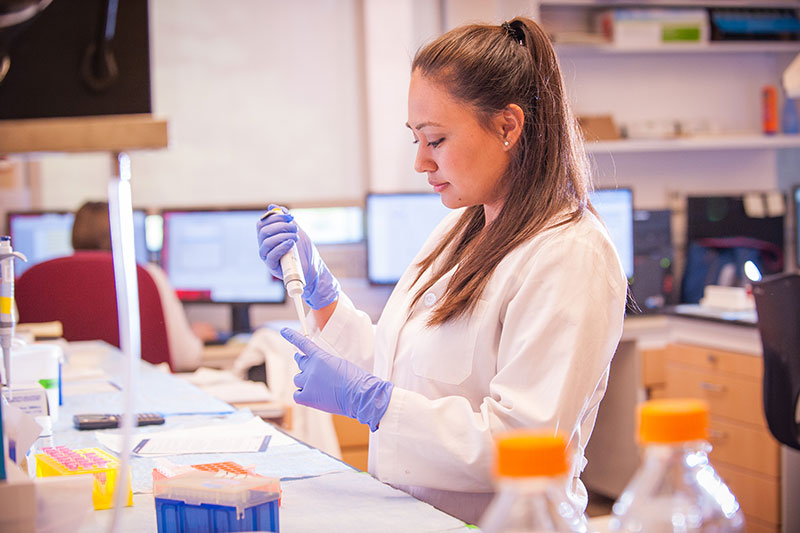Posted by: Karthik Aghoram, Professor of Biological Sciences; Director, Pre-Health Post Baccalaureate Program

Modern healthcare delivery is a team-based, inter-professional endeavor. If you are a high school student considering a career in the healthcare industry, I want to help you determine if this is the right path for you. As a professor of biological sciences and Director of the Pre-Health, Post-Baccalaureate program, I want to share some of the qualities, experiences, and skills that you must possess for a happy, successful career.
Almost all health professionals complete a bachelor’s degree before entering a health professional school for advanced doctoral or master’s degrees. All of these programs require a strong foundation in the sciences, as well as communication, psychology, and the humanities.
You must demonstrate a strong commitment to your academics by excelling in a rigorous and diverse course load. Admissions committees at health profession schools assess this commitment by considering your overall undergraduate GPA and performance in prescribed prerequisite courses. Some professions such as medical, dental, pharmacy, and optometry also require strong performances on specialized admissions tests that test the students’ knowledge and critical thinking skills.
Healthcare is a profession of service, and students who want to take care of patients must be able to demonstrate a strong track record of service before applying.
With a few exceptions, like physician assistant programs, there is no set number of hours or types of experiences. You should find your passion and immerse yourself in service so that it’s clear to the admissions committees that you have a strong understanding of the nature of the profession, and demonstrate a high level of commitment to serving others.
A competent healthcare professional must communicate effectively with team members and patients. They must be able to relate to people from diverse backgrounds, ages, and cultures.
You acquire and practice these skills by participating in student clubs or honor societies and by seeking out leadership roles in these organizations. The organization doesn’t need to be directly related to healthcare – for example, a pre-medical student may take up a leadership role in student government or an event (like Cornhuskin’ at Meredith) to demonstrate communication and leadership skills. Again, you discover and follow your interests.
For most health professions schools, the application process is rigorous and takes more than a year. In addition to grades and admission test scores, you must be able to write clearly and thoughtfully about your passions, experiences, and the attributes that make you a good fit for the profession you aspire to enter. You are then invited to an interview and if you demonstrate that your academic and personal attributes are a good fit with the mission of the school, you are offered admission into the program.
At Meredith College, all pre-health professions students and alumnae, regardless of major, receive structured and personalized advising. Throughout your time here, you will get advice from highly trained health professions advisors and peer mentors on how to schedule your courses, how to find leadership, shadowing, and community service opportunities, how to craft a personal statement, how to study for the admissions test, and how to prepare for interviews. You will become a part of the Meredith pre-health society and find a robust network of peers and role models who will mentor you and offer support as you pursue your dream.
And for those who already have a bachelor’s degree, Meredith offers a Pre-Health Post-Baccalaureate Certificate Program designed for individuals who are interested in either preparing to enter a healthcare field or enhancing their credentials for re-application to a health professions school. Over 90% of students who complete the program are accepted into health professional schools.
As the American population ages and becomes more diverse, the demand for healthcare professionals – doctors, dentists, nurses, physician assistants, pharmacists, veterinarians, physical and occupational therapists, optometrists, communication disorder specialists, nutritionists – increases. It is not surprising that the healthcare industry is one of the fastest-growing sectors in our economy. Not only that, the landscape of how healthcare is delivered and regulated is ever-changing, and the roles and responsibilities of healthcare professionals are constantly evolving.
Sign up for our blog and get tips to help you write a strong college application essay. You’ll also receive valuable information every week to help you with your college search, including how to tell if a school is a good fit, how to pay for college, and more!
Share This Page
Office of Admissions
1st Floor, Johnson Hall
1-800-MEREDITH
(919) 760-8581
(919) 760-2348
admissions@meredith.edu


3800 Hillsborough Street Raleigh, NC 27607-5298 | (919) 760-8600 Fax: (919) 760-8330 | © 2022 All Rights Reserved.